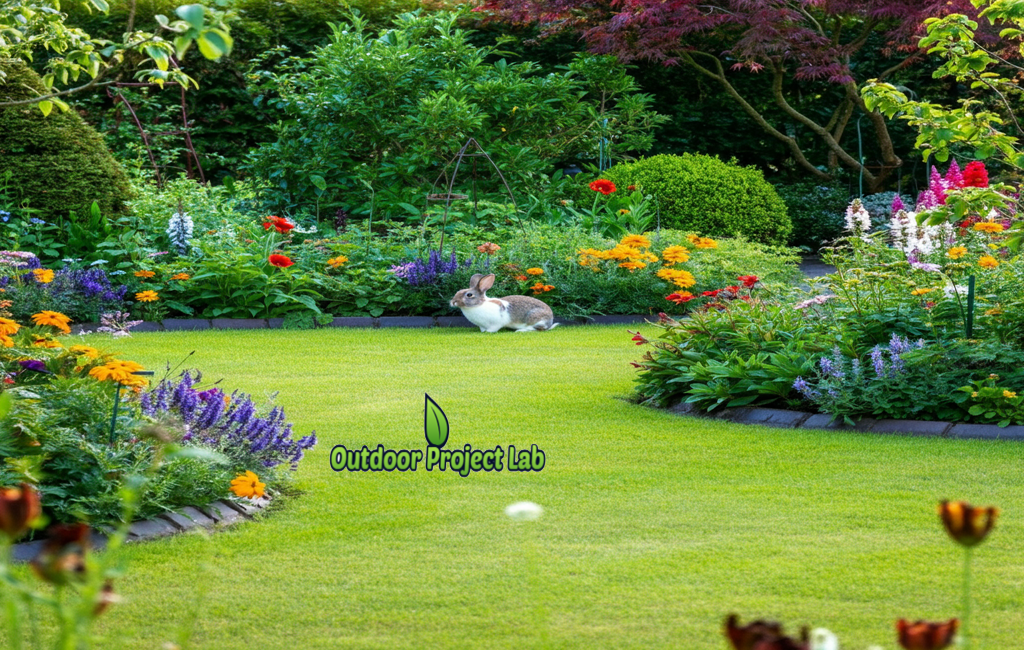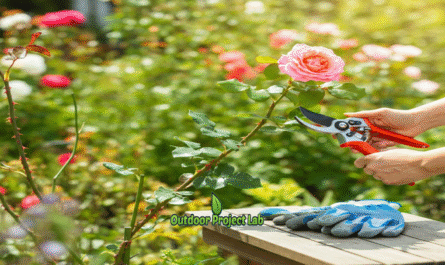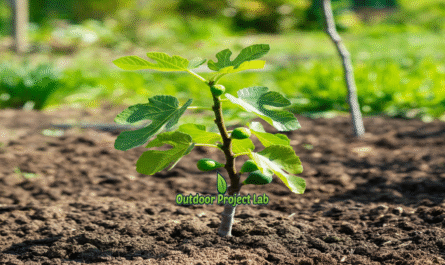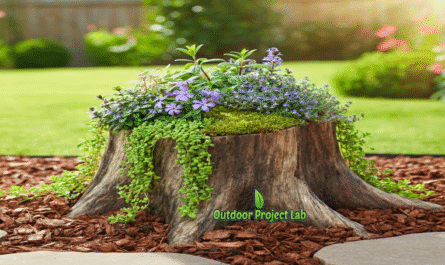Many gardeners are surprised to see yellow or brown patches appear on their otherwise green lawns. If you have rabbits visiting your yard, you might wonder if their urine is the cause. This article will explore whether rabbit urine harms grass and share simple, natural ways to protect your lawn from damage.
Understanding Rabbit Urine and Your Lawn
So, does rabbit pee kill grass? The short answer is yes, it can. Rabbit urine contains high concentrations of nitrogen and salts. While nitrogen is a key nutrient for grass, too much in one small area can be harmful. This overload causes a burning effect on the grass blades, leading to those unsightly brown spots.
The effect of rabbit urine damage to lawn areas is often a small, circular patch of dead grass, sometimes surrounded by a ring of dark green grass that is benefiting from the diluted nitrogen. You may notice these rabbit pee spots on grass in areas where rabbits frequently rest or feed. This phenomenon is known as rabbit urine nitrogen burn. While wild rabbits are a common cause, the same pet rabbit urine effect can be seen if your furry friend has free range in the yard.
Brown Patches From Rabbit Urine: What to Look For
The brown patches from rabbit urine are typically small and scattered. Because rabbits are creatures of habit, you might see these spots appear repeatedly in the same areas of your lawn. If you notice this pattern, it’s a strong indicator that you have a rabbit problem. Understanding how to stop a rabbit from peeing on your lawn starts with identifying their presence.
Rabbit Urine vs. Dog Urine on Grass
Many homeowners are familiar with lawn spots caused by dogs, but how does rabbit urine compare? While both can cause damage, there are some key differences. The main issue in the rabbit urine vs dog urine on grass debate comes down to concentration and volume.
|
Feature |
Rabbit Urine |
Dog Urine |
|---|---|---|
|
Nitrogen Levels |
Moderate |
High |
|
Causes Grass Burn |
Sometimes |
Often |
|
Smell Strength |
Mild |
Strong |
|
Lawn Damage Pattern |
Small spots |
Large patches |
|
Natural Solution Needed |
Yes |
Yes |
As shown, dog urine is generally more concentrated and is deposited in larger volumes, leading to more significant and noticeable lawn damage. However, a single rabbit visiting your lawn daily can still create numerous small brown spots over time, making rabbit urine lawn care an important consideration.
What You Can Do: How to Protect Your Lawn
Fortunately, there are several effective rabbit-proof yard solutions you can implement. These simple strategies can help prevent damage and keep your lawn looking its best.
- Water the Area: The simplest immediate fix is to dilute the urine. If you see a rabbit urinating on your lawn, or if you find a fresh spot, water the area thoroughly. This washes the nitrogen into the soil, preventing it from burning the grass. This is a common lawn care tip for any type of animal urine.
- Use Rabbit Repellents: Commercial rabbit repellents can be very effective. These products often use scents that rabbits dislike, such as garlic or predator smells, encouraging them to find another place to graze. You can apply these around the perimeter of your lawn or in problem areas.
- Install Fencing: A physical barrier is one of the best ways to keep rabbits out. A well-installed fence can completely solve your problem. It’s important to know how high rabbits can jump over garden fences to choose the right height. For an extra layer of protection, you can also consider protecting your garden beds by growing mini petunias in hanging baskets where rabbits can’t reach them.
- Repair the Spots: For existing brown patches, gently rake out the dead grass. Then, reseed the area and water it regularly until the new grass is established. Improving your lawn’s drainage by installing a French drain in clay soil can also help your grass become more resilient to various stressors, including urine spots.
- Encourage Natural Predators: Creating a welcoming environment for natural predators like hawks or owls can help manage the rabbit population. While this is a more passive approach, it contributes to a balanced ecosystem in your yard. For domesticated pets, the RSPCA notes that rabbits need a safe environment, which highlights their instinct to avoid predators.
A Healthy Lawn is a Resilient Lawn
While rabbit urine can indeed kill grass, the damage is usually minimal and manageable. By diluting fresh spots, using repellents, and installing proper fencing, you can effectively protect your yard. Regular lawn maintenance helps your grass stay strong and better able to recover from minor damage.
Keep an eye on your lawn for any changes, and don’t hesitate to take action. For more expert tips on gardening and yard care, visit us at Outdoor Project Lab. We are here to help you create and maintain the outdoor space of your dreams.




